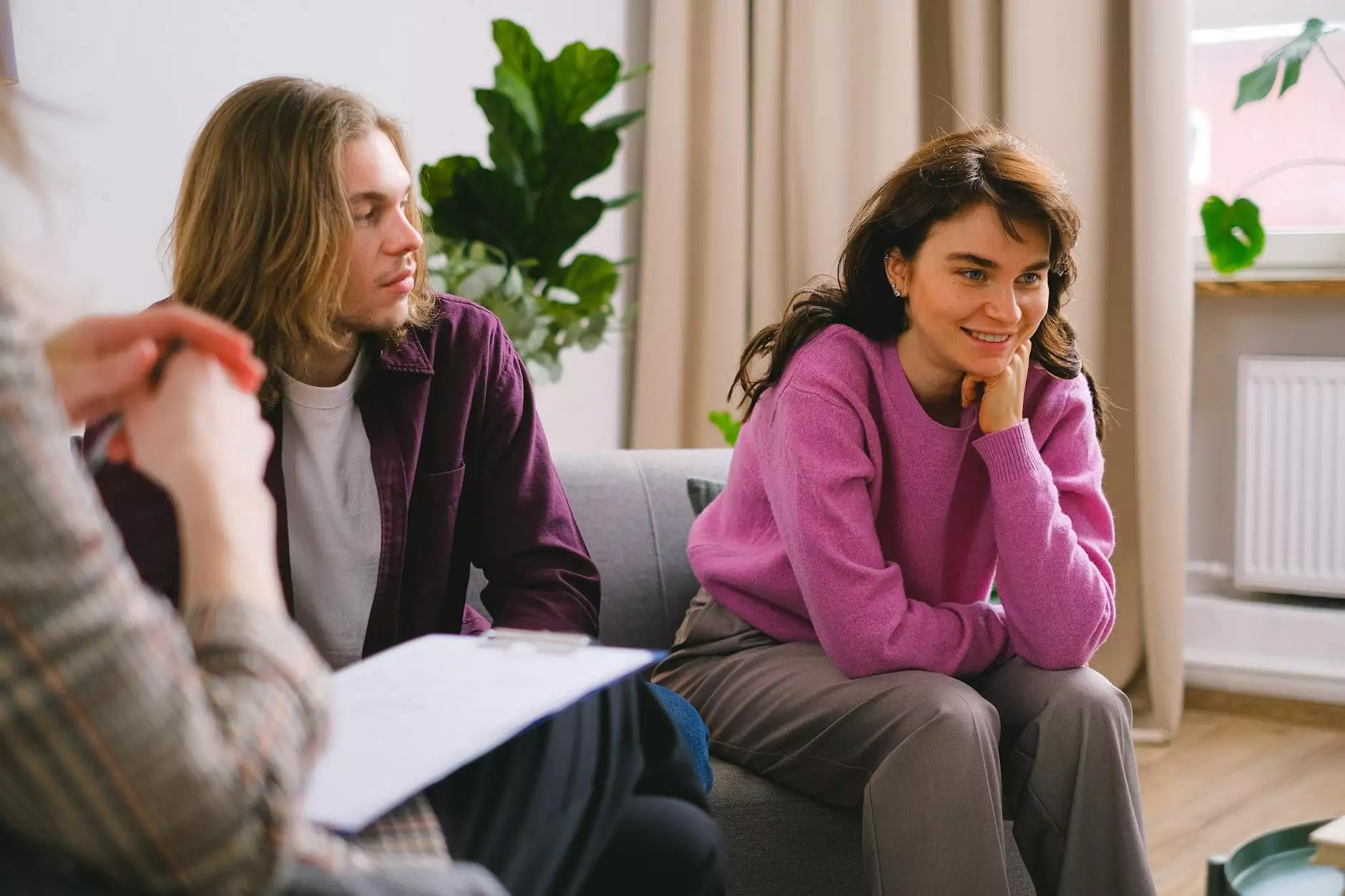Unlocking Healing and Growth through Group Psychotherapy: A Definitive Guide for Mental Health & Emotional Wellbeing

In today’s fast-paced and often complex world, maintaining optimal mental health is more important than ever. Group psychotherapy has emerged as one of the most effective, accessible, and transformative approaches to mental health treatment. By harnessing the power of collective healing, this modality creates a unique environment where individuals can confront challenges, develop resilience, and foster genuine connection with others who share similar struggles.
Understanding Group Psychotherapy: An Overview
At its core, group psychotherapy involves facilitating a therapeutic process within a structured group setting, where individuals work together under the guidance of a trained therapist. Unlike individual therapy, which focuses solely on one person, group therapy provides several distinctive benefits rooted in social interconnectedness and shared experiences.
How Does Group Psychotherapy Work?
This approach operates on the principle that social relationships and group dynamics can significantly influence psychological growth. Participants openly share their feelings, thoughts, and experiences, fostering a supportive environment that encourages honesty and vulnerability. The therapist moderates discussions, facilitates interpersonal interactions, and guides the group toward healing objectives.
Key Elements of Effective Group Psychotherapy
- Confidentiality: Building trust is essential to create a safe space for open sharing.
- Group cohesion: Strong bonds among members promote mutual support and a sense of belonging.
- Therapeutic techniques: Use of cognitive-behavioral, psychodynamic, or experiential methods tailored to group needs.
- Structured sessions: Clear goals, protocols, and processes enhance treatment efficacy.
The Benefits of Group Psychotherapy for Mental Health
1. Cost-Effective and Accessible Treatment Option
One of the most attractive features of group psychotherapy is its affordability. With multiple participants sharing the cost, individuals can access high-quality therapy at a fraction of the price of individual sessions. This inclusivity broadens access to mental health care, especially in underserved communities.
2. Fosters Peer Support and Reduced Feelings of Isolation
Feeling understood and accepted by others who face similar issues can dramatically reduce feelings of loneliness and alienation. The shared experiences in a group create a sense of solidarity, reminding members they are not alone in their struggles.
3. Enhances Social Skills and Interpersonal Effectiveness
Through real-time interactions, participants develop and practice vital social skills such as empathy, active listening, effective communication, and conflict resolution. These skills are transferable to everyday relationships outside therapy.
4. Promotes Self-Awareness and Personal Growth
Exploring personal reactions and behaviors within a group context encourages deeper self-understanding. Feedback from peers can shed light on blind spots, boosting self-awareness and fostering personal development.
5. Accelerates Healing through Collective Dynamics
Group settings capitalize on the phenomenon of group cohesion and shared vulnerability to accelerate therapeutic progress. The combined energy and support can lead to faster breakthroughs and sustained change.
Types of Group Psychotherapy: Tailoring Treatment to Needs
Different types of group psychotherapy are designed to target specific issues and population needs. Here are some prominent forms:
1. Support Groups
Primarily aimed at providing emotional support for individuals facing specific challenges such as addiction, grief, chronic illness, or mental health disorders. These groups emphasize mutual aid and shared experiences.
2. Psychoeducational Groups
Focused on educating members about their conditions or topics like stress management, coping skills, or healthy relationships. They combine information dissemination with group discussion.
3. Process-Oriented Therapy Groups
Centered on exploring emotional processes, interpersonal dynamics, and underlying psychological patterns. These groups promote in-depth emotional work and insight.
4. Cognitive-Behavioral Group Therapy (CBT)
Utilizes structured, goal-oriented techniques rooted in cognitive-behavioral principles to challenge maladaptive thoughts and behaviors. Ideal for anxiety, depression, and phobias.
5. Psychodynamic Group Therapy
Focuses on unconscious processes, past experiences, and transference phenomena. It facilitates deep psychological insight and healing through exploration of inner conflicts.
Key Factors Contributing to Success in Group Psychotherapy
While the potential benefits are significant, optimal outcomes depend on several critical factors:
Skilled Facilitation
The experience and sensitivity of the therapist are fundamental. A proficient therapist can manage group dynamics, ensure safety, and tailor interventions to meet diverse needs.
Participant Commitment
Active participation, openness, and commitment from each member foster a safe and productive environment. The more engaged participants are, the greater the potential for transformational change.
Establishing Clear Goals and Expectations
When group members understand the purpose and boundaries of therapy, they can focus on meaningful progress rather than confusion or ambiguity.
Creating a Respectful and Confidential Environment
Trust is the cornerstone of effective group psychotherapy. Ensuring confidentiality and mutual respect encourages members to share authentically and vulnerably.
Why Choose limbicflow.com.au for Your Group Psychotherapy Needs?
At limbicflow.com.au, we specialize in providing compassionate, evidence-based counseling & mental health services tailored to individual and group needs. Our team of highly trained therapists brings extensive expertise in group psychotherapy, ensuring clients receive personalized and effective treatment in a supportive environment.
Our Approach
- Holistic Care: Integrating mind, body, and emotional health for comprehensive healing.
- Evidence-Based Techniques: Incorporating latest research and proven methods in group therapy sessions.
- Client-Centric Philosophy: Prioritizing your unique experiences, goals, and comfort.
- Community Focus: Building a sense of belonging and collective growth among group members.
Services Offered
- Therapeutic Group Sessions for Anxiety and Depression
- Support Groups for Grief and Loss
- Stress Management and Resilience Building Groups
- Relationship and Communication Skills Workshops
- Specialized Psychodynamic & Cognitive-Behavioral Group Programs
The Roadmap to Successful Group Psychotherapy Engagement
If you are considering group psychotherapy, understanding the process can help you prepare and maximize benefits. Here is a typical pathway:
1. Initial Consultation and Assessment
Our therapists will evaluate your needs, history, and goals to determine if group therapy suits you and which type would be most beneficial.
2. Formation of the Group
Groups are carefully assembled based on shared concerns, demographics, and compatibility to ensure productive dynamics.
3. Active Participation in Scheduled Sessions
Consistent attendance and engagement are critical. You will be encouraged to share, listen, and build trust within the group setting.
4. Ongoing Evaluation and Adjustments
Regular progress reviews help tailor the approach, address challenges, and celebrate successes.
Empower Your Mental Health with the Right Support: Join Our Group Psychotherapy Programs Today!
Taking the step toward group psychotherapy can be transformative. With the support of experienced professionals at limbicflow.com.au, you can unlock your potential, overcome emotional barriers, and embrace a healthier, more fulfilling life. Our community-oriented, evidence-based approach ensures you are in safe, capable hands.
Don’t wait to make the change you deserve. Contact us today to learn more about our group psychotherapy programs and start your journey towards lasting mental wellness.
Remember: Healing is often more powerful when shared. Join our community and experience the strength of collective resilience.









